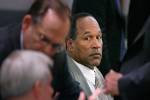Culture plays an important role in our religious thoughts
You talked in an earlier column about your struggles in the priesthood, etc. In your (Jan. 11) column you talk about "letting go" as an important attitude to bring toward the ultimate realities of mortality -- death and the beyond. I've sensed in some of the columns I've read an underlying appreciation for many of the Buddha's insights into human existence. Could you comment on how his philosophy has influenced your spiritual and psychological journey (since exiting the active priesthood)?
-- J.M., Las Vegas
I can't say that I'm any real scholar of Buddhism. And certainly not a practitioner of it. What I am is a keen student of philosophy, religion, and philosophy of religion. I examine such things for themselves, but also historically, anthropologically, psychologically and culturally.
That last piece -- culture -- is huge. A common American naïveté (a hubris, really) is the tendency to blithely reach into world religions like so many items on a Lazy Susan buffet. We forget that significant religious systems are inextricably tied to significant cultures.
There is no way to "receive" Christianity without banging into Western culture. No way to take on the practice of Judaism without encountering Semitic culture. And certainly no way to walk the path of Buddhism without coming to terms with a decidedly Eastern view of the world.
Critics of worldwide Christian missionary activity are correct to complain that converting people to Christianity often includes a Trojan horse of expectations to live like Americans live: "Oh, by the way, meant to tell you that Jesus is a capitalist and certainly would have carried a Costco membership card had there been a Costco where he lived. Where do you people wanna build your first McDonald's? Oh, and Christians go shopping a lot."
I'm saying, J.M., that I want to retain sufficient humility to remember that, whatever intrigue, appreciation, or criticisms I have of Buddhism, my understanding of it will always be secondhand. I can't have a primary experience of it, because I was not acculturated in its world.
That said ...
I often think of Christianity, Judaism and Buddhism/Hinduism on a geographic line from left to right, from west to east. I think of Judaism as the prism of sorts, it being the religion smack dab in the middle. One foot in both worlds. An intriguing doorway and invitation to each.
I often think of Buddhism as "the shadow side" of Christianity (in the Jungian sense of The Shadow.) Not a negative thing at all. Rather, as the necessary counterbalance. Christians talk of attachment and striving. Their religious practice is primarily katophatic (the way of symbols). Buddhists talk of detachment and mindfulness. Their religious practice is primarily apophatic (an emptying). Doesn't take a rocket scientist to see that both practices are, paradoxically, right. Efficacious.
I give you the names Thomas Merton (now deceased) and Thích Naht Hanh. Merton, born in 1915, a Trappist monk and author. Hanh, born in 1926, an expatriate Vietnamese Buddhist monk, peace activist and author. They were colleagues and friends. Both universalists, spiritually speaking, each reaching into the other's world with feet planted firmly in their respective religions.
If you asked me to recommend something Merton wrote, I would answer: "Go, now, and read everything that Merton ever wrote." Which is the same thing I would say about Naht Hanh.
But, you asked about influences. Hanh wrote "Living Buddha, Living Christ." Hanh's is a universalism I admire and respect deeply. He semiscandalized his own community by putting an icon of Jesus on his Buddhist altar. If there was one book that could give a westerner -- and especially a Christian westerner -- a solid grip on Buddhism, it might be this one.
And to answer another part of your question, my studies in and appreciation of Buddhism are really an independent variable in the joys and sufferings in my formal life as an Episcopal priest. I didn't walk away from that vocation because I found the message of Christianity incomplete, but because I could not reconcile the norms and practices of the institutional church with that message.
For me, it became antithetical to living authentically. I couldn't make that trade.
Originally published in View News, Feb. 17, 2009.

















